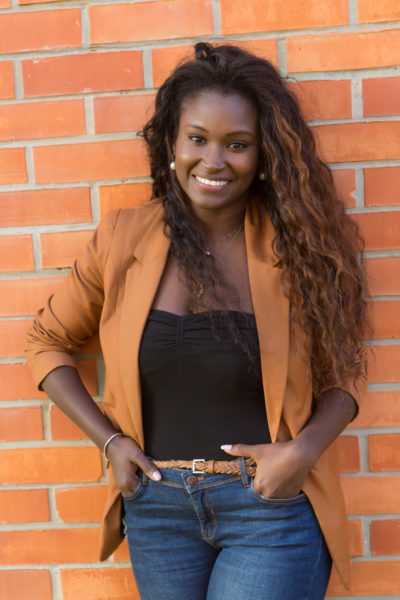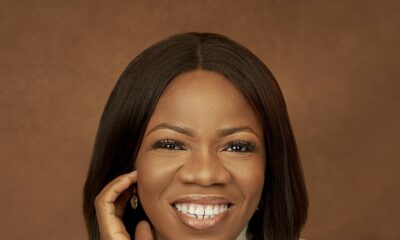Features
William Ifeanyi Moore: Feminism and the Nigerian Woman
 In its infancy as an ideology, feminism was championed mostly by the most educated women in society; most notably in my opinion, Simone de Beauvoir, author of my favorite feminist literature, The Other Sex. In this book she tried to explain what I believe to be the core value of the feminist ideology (something often forgotten and sometimes unknown to a lot of modern day feminists); to recognize men and women first as beings, not just equal, but the same, on an existential level. Following the work of her lifetime partner, John-Paul Sartre, who wrote on existential philosophy in his book Being and Nothingness where he stated that existence precedes essence – meaning that we first come into existence as beings, before we are defined. Simone de Beauvoir stated that one is not born a woman, but one becomes a woman. Likewise, one is not born a man, but one becomes a man. Woman and man, in this case representing the gender construct societies lays out for us. i.e boys don’t cry and girls like pink.
In its infancy as an ideology, feminism was championed mostly by the most educated women in society; most notably in my opinion, Simone de Beauvoir, author of my favorite feminist literature, The Other Sex. In this book she tried to explain what I believe to be the core value of the feminist ideology (something often forgotten and sometimes unknown to a lot of modern day feminists); to recognize men and women first as beings, not just equal, but the same, on an existential level. Following the work of her lifetime partner, John-Paul Sartre, who wrote on existential philosophy in his book Being and Nothingness where he stated that existence precedes essence – meaning that we first come into existence as beings, before we are defined. Simone de Beauvoir stated that one is not born a woman, but one becomes a woman. Likewise, one is not born a man, but one becomes a man. Woman and man, in this case representing the gender construct societies lays out for us. i.e boys don’t cry and girls like pink.
Studies into the concept of gender have since gone on to prove the construct to be completely fluid. Some women like beer and football and some men like Telemundo and Cosmopolitan cocktails. However, social forces have always forced an identity on both genders; the female often receiving the short end of the stick in most societies making the male some kind of gold standard to be measured against. This is why a woman being assertive will be said to be acting like a man or other such nonsense. While it would be ideal to say that we don’t care what anyone or society thinks and we are just going to ‘do us’, the reality is that humans are social creatures; for the most part, what others think of us and how they treat us will affect our behaviour and how we feel.
Over the years, a lot of notions that restrict the liberty of women have been perpetuated by societies, and even though men are also restricted in a lot of ways, compared to women, we don’t have it so bad. It is the recognition that men and women both exist firstly as free beings with equal right to freedom of choice and liberty of the soul without any discrimination politically, socially, culturally, economically and any other ‘ally’ you might want to insert that defines a feminist.
Currently, most Nigerians aren’t even educated well enough to understand this concept and you only have to look at the overall education rate and standard in this country to understand this. Most of us have been raised in this society constantly exposed to sexism with our parents even playing a big role – by making sons feel entitled and pushing daughters towards submission. The result is a generation where men are largely sexist and women largely act in ways that perpetuate such behavior.
From the backlash in my recent posts, I have become aware of what I believe to be the greatest problem with the Nigerian feminist movement. A lot of female Nigerian feminists are of the notion that they represent the average Nigerian woman. This is reminiscent of an interview by the aforementioned Simone de Beauvoir where she confessed to have been unaware of any sexism for a long time because her partner always treated her like an equal and her work was never put down among French intellectuals of their time because she was a woman. It is normal for us to perceive our experience to represent the majority or at least the norm.
The notion that everyone sees the world like we do is probably one of the greater flaws of human psychology; but without it, we would be incapable of empathy. So, it is also necessary. As it stands today, our society is largely sexist and it is nobody’s fault. This is probably the second problem I highlighted from my post that addressed how women perpetuate sexism by identifying with submission. I would like to draw the attention of the Nigerian feminist crowd to the fact that for every one of you championing equality for the sexes, there are twenty championing for gender roles that keep women shackled in a relatively unfavorable gender construct. So when men like myself make our sweeping generalizations, we are not referring to your class, rather we are speaking of the average victim of the Nigerian sexist system. If majority of women in Nigeria did not act in ways that perpetuated sexism (demand dominance in exchange for submission), we would not have a sexist problem because it would mean we have no victims.
So when I say a lot of women contribute to the perpetuation of sexism by expecting male dominance, it is not to say that women are the cause of sexism. Sexism is not caused by anyone, neither is it anyone’s fault. It is simply symptomatic of the society we have developed; both men and women, on a daily basis, passively perpetuate it. While I will admit to be guilty of hammering down on women in my recent writing, I will also say it is not for mischievous reasons.
Every social movement for emancipation starts from the organization of the oppressed within themselves before the fight is brought to the oppressor. Imagine if MLK and Malcom X couldn’t create a united front with blacks, what chance would they have stood in shifting the culture they rebelled against?
For the most part, Nigerian men are enjoying a good deal at the moment. As long as there are women out there willing to play into submission (which the majority are as our parents, society and religion have convinced them to), men will have no need for change besides extreme altruism (you wish). This makes the first course of action for women to be getting organized and united in their front; otherwise, feminism will remain nothing but an online blame game with a few exposed men sympathizing, while the society carries on with little or no change at all.
In my opinion, the conflict between women in defining the ethos of the feminist movement remains the biggest roadblock to any effective change but you are free to disagree. In more developed societies where the fight for equality still rages, the level of education and exposure has made it easy for majority of the women to get onboard so preaching can be directed at the men. In Nigeria, we aren’t even remotely close to that part of the struggle yet. Don’t be fooled by your Lagos metropolitan life, go to Onitsha and preach feminism and see how far that gets you.
Personally, I believe for my generation, the boat of equality has sailed for women. The average 25-year-old has already formed his or her world view and not a thousand posts on the Internet is going to convince him or her otherwise. If you met a 25-year-old female that tells you the man is the head, nne, just leave the matter, your preaching mostly likely will only fall on deaf ears. For men, the subject of feminism within us is mostly treated with dismissal and referred to as a madness Chimamanda and Beyonce continue to spread.
The fight is not for the young woman today, but for the daughters to come. Without an awareness of how women continue to reinforce the stereotype that both men and women were raised to believe in, how can women even begin to correct the society’s line of thinking? If men are raised to believe they are superior, only to go out and find the majority of women playing up to the idea with a few feminists trying to debunk it, how aren’t the men going to dismiss the feminists to the back as a bunch of noise makers?
Again, sexism is not anyone’s fault. It is not something men do to women or something women make men do to them, it is just a symptom of a social structure we were born into and socialized with.
Lastly, when it comes to conversation about sexism, it is easy to degenerate into name-calling and pointless bickering because the issue can be rather personal for a lot of people, most notably women, as they are the primary victims. If any progress is to be made in this fight, no party can be exempt from criticism and we need our emotions in check to allow the voice of reason because the issue cuts across gender. And in fact, for Nigeria where education isn’t so great, females will have to endure more criticism to wake up to the situation, as they are the primary victims. Lack of nationwide female awareness of the situation will guarantee a standstill regardless of how many speeches and articles shared by a few concerned citizens.
I will end it here as this is already uncharacteristically long for my articles, but I guess not everything can fit on a page.
Photo Credit: Dreamstime



















